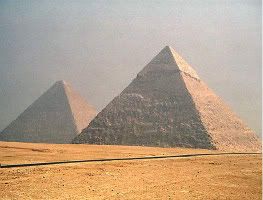Recently there were many articles in Arab media related to the Arabic language.
The articles deal with a variation on a single theme – the future of Arabic: such as the preservation of Arabic in the face of globalization, the poor instruction of the language, the outdated books and methods, the dominance of English in business, the mixture of languages, apathy of native speakers to learn Arabic properly, and finally the threat to Arab national identity due to the dwindling use of the language in many settings. These topics have been discussed ad nauseam in all types of media, national and international, and no proper measures seem to be undertaken to remedy the situation.
One specific article worth mentioning was written by Muhammad Ayish in the National Conversation dealing with the future of Arabic. It was written following discussions during Arabic Language Day regarding the future of Arabic in the context of globalization. A day initiated by the UN General Assembly in 1971 and celebrated every year.The article is very much a propos since there seems to be a real concern in the Arab world regarding the decreasing use of Arabic in “everyday settings and professional life.”
Ayish expresses optimism in his article for the future of Arabic, its development and preservation. He maintains that “Cyberspace” will open “new frontier for the future of Arabic. This is in spite of the media’s consistent warning that the use of Arabic is dwindling and is thus threatening “national identity in Arab countries.” Http://www.thenational.ae (12/26/2010).
Muhammad Ayish writes that Professor Yasir Suleiman, the author of The Arabic Language and National Identity sees “huge potential for Arabic to be further developed in cyberspace and the media sphere.” He further adds that Professor Suleiman at a Cambridge conference on Middle East broadcasting “spoke on the potential role for communication media in virtual reality to expand the use of Arabic and encourage a greater articulation of our national identity.”
Ayish in the same article brings up a positive development in the Arab world. He wrote, “The UAE, Saudi Arabia, and Egypt introduced Arabic domain names to allow Arabic-speaking users to access Web content.” Furthermore, “Internet content services like Maktoob.com” was “recently acquired by Yahoo.com, operating in Arabic, and Facebook has also launched “its Arabic services to allow million of users …to interact in their native language." “In observing the UN-declared International Mother Language Day” says Ayish… “There was a campaign among the region’s Facebook users to communicate exclusively in Arabic.”
The article ends with a note of caution as well as with anticipation as to the future of Arabic. “I understand,” concludes Ayish, “the challenges ahead are incredible tough, but the opportunities in cyberspace for the development of the language are as expansive as the medium itself.”
The survival of the Arabic language, standard Arabic, should not be of such concern. It is a language that carries a well-established religious tradition as well as an immense literary heritage. It is a language that acts as a unifying force, a common denominator among all speakers of the language in the Arab world. It is an expression of identity. Hence, it is not a dying language. But it is rather a language that is evolving and changing which is an accomplishment of performance.
What should be of concern to all is the ailing system of education in most of the Arab world. A system that is constantly failing to embed among Arabic speakers a sense of pride toward the language and realizing, as Professor Suleiman explores in his book, “the symbiotic link between language and identity…”
Copyright © 2010 Aleya Rouchdy, All Rights Reserved





No comments:
Post a Comment